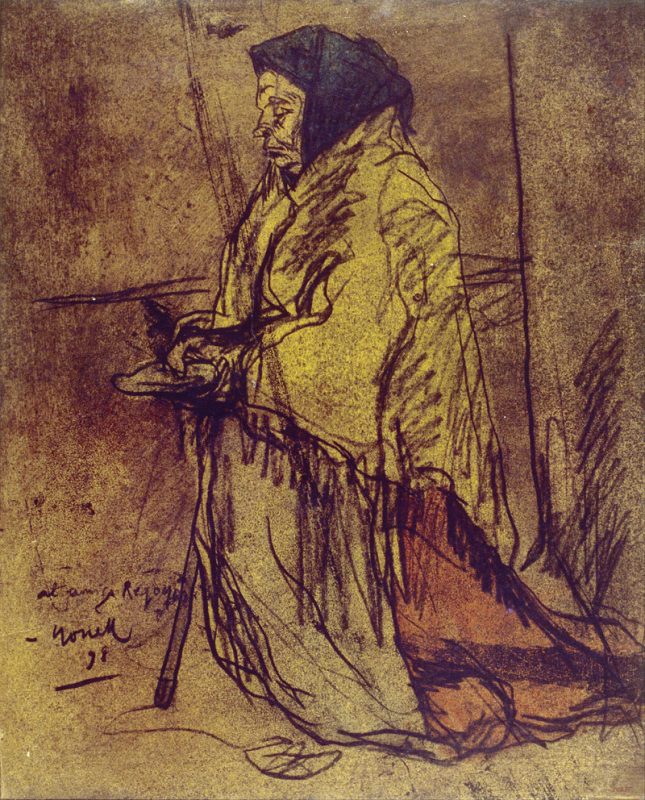The season of Lent is frequently seen a time of preparation, penitence, fasting, and sacrifice. In my experience as a young Episcopalian it was also a time of more kneeling. This may be, in part, because I was already eleven years old when the new prayer book came out, so I already had several years of experience of the church with the 1928 prayer book which had a more penitential tone, especially in Lent.
Since I was a child, I can remember I have struggled with kneeling in church. In part because I associated kneeling with being penitent when I didn’t feel that I’d done anything wrong and then later as a teen because I had a bad back. I was thrilled when my home congregation slowly transitioned to less required kneeling and more of the optional stand or kneel instructions.
As an adult my thinking changed and expanded. For one thing, my back got better thanks to a clever physical therapist. For another, I spent a lot of time thinking about the order of service, what ritual story was being told, and how moving my body helped me feel the rhythm of the readings, prayers, and hymns of the service. I still tended to resist kneeling.
Some of my struggle with kneeling comes from my issues with having ‘be humble’ thrust upon me when people wanted me to perform humility in a certain way because I was young and female. In an age where women were learning to stand up for their rights as fully independent human beings the idea that girls were supposed to be meek and humble rubbed me the wrong way. One way I could resist that social force was by standing before my God.
I figured God knew if I was feeling humble or proud and I didn’t need to bow (literally) to human social pressure and kneel. (I will say for all of my rebellious thoughts; I was never disruptive during worship. God was likely the only person who knew how much thought I was giving to the idea of when to kneel and when not to.) I didn’t need to perform for God.
Recently I was out in the garden planting some ground cover in a new terraced area of our front yard. My daughter had arranged some very large rocks to level out a small area where we put a bench and I decided rather than letting grass take it over I would put in some native ground cover to make the new area more a part of the entire yard. I was on my knees digging holes, freeing pot bound roots and racing to get the plants in the ground before full dark, when I realized that there are some things that I do on my knees that give me great joy.
I garden, getting down on my knees to weed and plant. I play with young children, getting down on hands and knees to play their games.
In short, I realized that I could also kneel in an attitude of playfulness and joy. The action of kneeling did not have to be solely one of penitence and sorrow, it could also be full an act of that deep joy and awe that can cause me to cry tears of happiness.
The first part of psalm 95 captures some of that spirit for me. It is full of a joyful exuberance, such that even when it calls for us to bow down it seems to do so in a spirit of joy.
O come, let us sing to the Lord;
let us make a joyful noise to the rock of our salvation!
Let us come into his presence with thanksgiving;
let us make a joyful noise to him with songs of praise!
For the Lord is a great God,
and a great King above all gods.
In his hand are the depths of the earth;
the heights of the mountains are his also.
The sea is his, for he made it,
and the dry land, which his hands have formed.
O come, let us worship and bow down,
let us kneel before the Lord, our Maker!
For he is our God,
and we are the people of his pasture,
and the sheep of his hand.
Psalm 95: 1-7
Sometimes it’s important to kneel down in an attitude of humility, penitence, or petition; sometimes, however, I think it’s helpful to kneel in an attitude of joy.
————-
Bible citations are from Bible Gateway using the NRSV text.
Kristin Fontaine is an itinerant Episcopalian, crafter, hobbyist, and unstoppable organizer of everything. Advent is her favorite season, but she thinks about the meaning of life and her relationship to God year-round. It all spills out in the essays she writes. She and her husband own Dailey Data Group, a statistical consulting company.
© 2019 Kristin Fontaine

